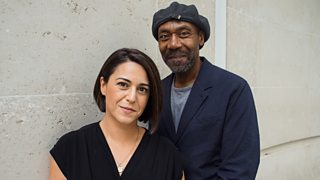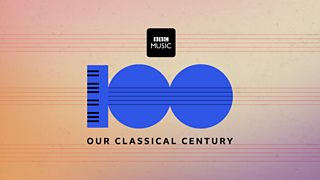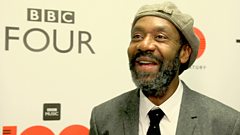
Antonio Vivaldi: The Four Seasons
The 1989 Nigel Kennedy recording that would go on to become the best-selling classical music record of all time.
On 25 September 1989, Nigel Kennedy’s recording of Vivaldi’s Four Seasons was released on EMI. It would go on to become the best-selling classical music record of all time. Three million copies were purchased worldwide and the album held on to the No 1 spot in the classical chart for more than a year.
It was a smart choice for EMI. Vivaldi's The Four Seasons - with its 12 tracks each around 3 minutes long - was perfect for a non-specialist audience more used to popular culture. And they had a smart marketing campaign with a promotional single, huge billboard posters, radio and TV commercials. This was the first time that a concerto had been given starry pop marketing.
The recording is an exhilarating ride with Kennedy’s own embellishments. It sealed his reputation as a unique artist and brilliant violinist and won him a rapidly growing fan base. Kennedy could have stopped right there. He was the spiky-haired, football-loving, punk violinist - a maverick, foot-stamping performer, a jazz-loving, formidable talent. "By the age of 30," he said, "I had received the important classical music awards and if I stopped playing, I could rest on those laurels."
But Kennedy didn’t stop. And he didn’t let The Four Seasons rest either.
Twenty-five years later, Kennedy re-released The Four Seasons with a unique take on authentic performance. It was as if Vivaldi’s score had been steeped in the textures and technology of the late 20th century, then filtered through Kennedy’s eccentric imagination. Performing with his own Polish ensemble, the Orchestra of Life, The Four Seasons appears as a fantastical musical playground where swirling electronics, birdsong and raucous, earthy dance beats weave around dream-like 18th century ghosts.It felt diverse, inclusive and relevant.
Yet this is no box-ticking exercise. Kennedy shuns contemporary trends. Gender balance? "What’s so important?" he says. His musical heroes? Mostly deceased. Living classical composers? There are none in his repertoire. He doesn’t own or use a computer ("Not seen them help anyone’s lives," he says) and he ignores social media.
"I refuse to be put into a little box," Kennedy wrote in his 1991 biography. One foot in and one foot out of the industry, Kennedy walks an intoxicating tightrope. "Be yourself," he says, "but do it really well".
This is one of 100 significant musical moments explored by Â鶹ԼÅÄ Radio 3’s Essential Classics as part of Our Classical Century, a Â鶹ԼÅÄ season celebrating a momentous 100 years in music from 1918 to 2018. Visit bbc.co.uk/ourclassicalcentury to watch and listen to all programmes in the season.
This is an excerpt from a recording of Spring by Nigel Kennedy and the English Chamber Orchestra.
Duration:
This clip is from
Featured in...
![]()
The music of Our Classical Century—Our Classical Century
100 recordings to celebrate 100 years of exciting, inspirational, rule-busting music.
More clips from Our Classical Century
-
![]()
Step outside your musical tribe
Duration: 02:49



